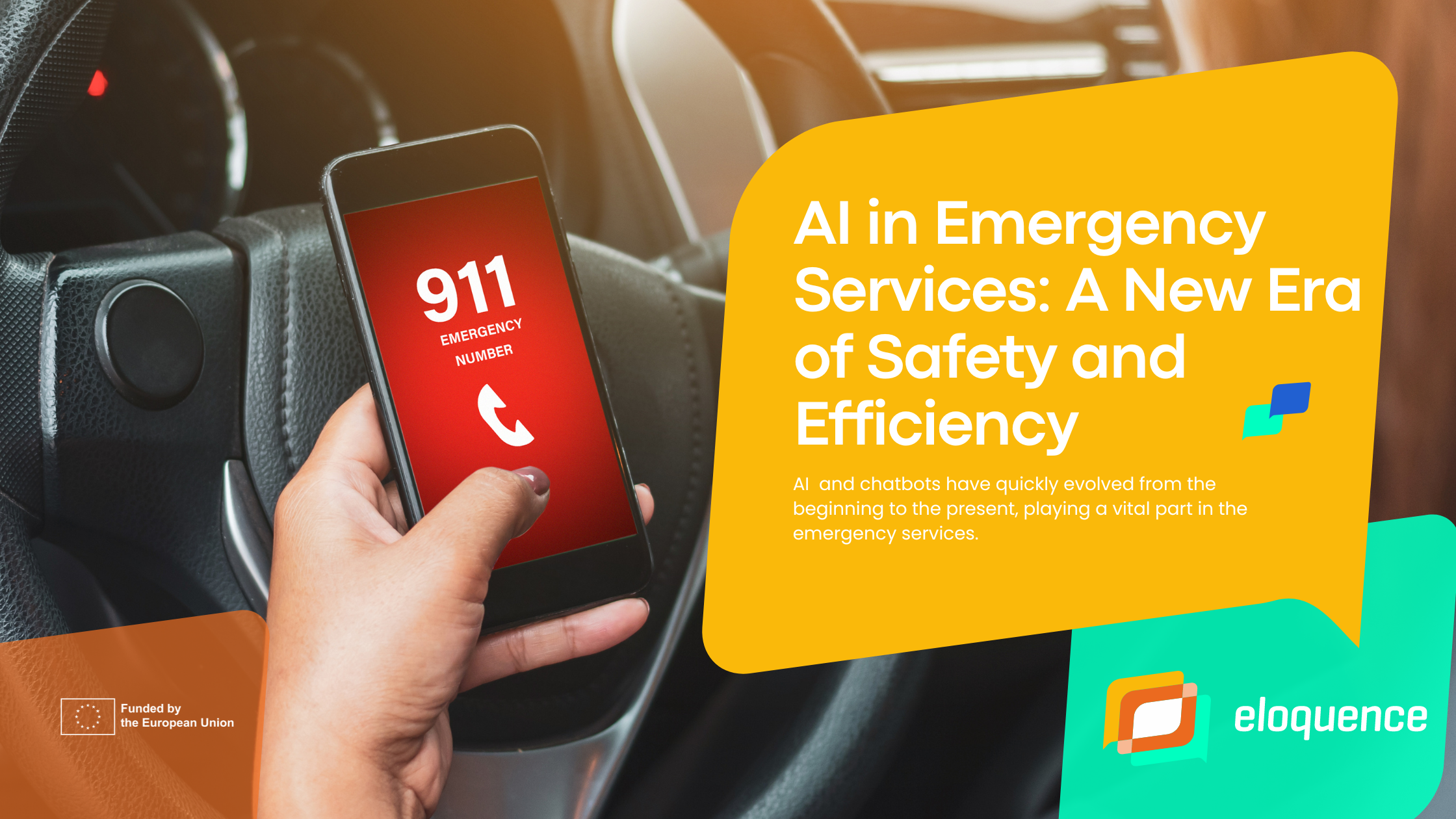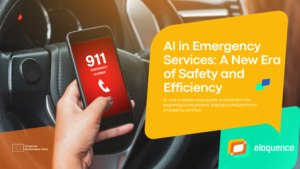Artificial Intelligence (AI) has quickly changed many industries and emergency services have not been left out. Due to the incorporation of AI technologies such as chatbots and large language models (LLMs), emergency response systems are becoming more reactive, efficient and adaptable in dealing with various problems. This article shows how AI is changing emergency services, hinting at future public safety.
Improving Decision-Making
AI provides significant benefits in terms of reducing response times in case of emergencies. Traditional emergency call centers rely on humans to assess situations which can result in delays during peak hours or complicated emergencies. AI-based systems can process and prioritise calls in real-time, ensuring urgent cases get attention immediately.
Nowadays, some AI systems search through incoming emergency calls for specific keywords and then rate severity using available context. This helps expedite dispatch while also improving resource allocation.
When it comes to providing critical information and predictive analytics, AI can be useful in preventing natural disasters such as hurricanes or the spread of a wildfire, enabling authorities to plan evacuations and allocate resources more efficiently.
Before advanced technology, predicting a wildfire was very tedious and time-consuming. Fire service personnel would analyse historical data on past wildfires to gain insights into wildfire patterns and trends. Now, satellite imagery, drones and AI-driven predictive models are helping to monitor fire-prone areas and provide early warnings, enabling a more efficient process of making timely decisions.
Chatbots Communication
Chatbots are becoming a key tool in changing the face of the efficacy of emergency services in their interaction with the general public. Opportunities of AI are in enabling the chatbot to work on general questions, offer help of any kind, or give directions in case of a dangerous situation. This also means that the human operators are relieved to handle other more urgent or critical tasks. A particularly useful case is an example of a chatbot teaching someone CPR steps while the emergency services are on their way. This real-time help is invaluable and actually serves to boost the effectiveness of the response mechanisms in place.
An AI system can read data from different sources to determine when there is a high likelihood of a certain occurrence like crime or even officer surveillance of public events for any signs of such a threat. This leads to the possibility of their apprehension by the police before they can actualize their Grapheme, and therefore enhances the likelihood of crime prevention and generally, enhancing security.
Concerns about Data Privacy and Ethics
As AI technology continues to advance, so do the benefits accompanying it but also there are issues like data privacy and ethically proper utilization. The European Union has adopted the AI Act which represents a piece of regulatory law that sets comprehensive rules surrounding artificial intelligence technology. The AI Act applies a risk-based approach to artificial intelligence, meaning that different applications of the technology are treated differently, depending on the perceived threats they pose to society. Still, it is important to update regularly proper norms and rules about artificial intelligence in emergencies so that potential ethical issues can be solved and AI technologies can be used correctly.
With the growth of technology, there will be even more advanced systems which will be capable of performing intricate operations such as search and rescue operations utilizing drones that are technologically self-sufficient, or an advanced command centre which will integrate various artificial intelligence to operate during major disasters. AI may further allow for an integrated emergency response system that may fuse data input from several sources to gain a holistic and synchronistic picture of the incidents requiring intervention, thereby improving the response to emergencies.
It is evident that AI and chatbots will establish the new standard for emergency services in terms of effectiveness, time, and reliability. As these technologies advance further in the near future, they will remain critical in ensuring the security of our communities and supporting the measures of the rescue teams.


